
The Evergreen Allure of Ivy Plants for Year-Round Elegance
Published: 18/04/2024 | Updated: 03/06/2024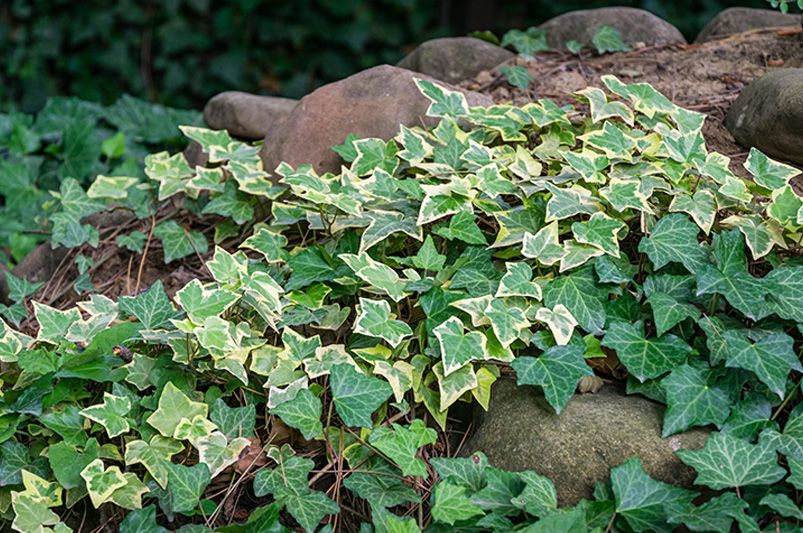
Many gardeners desire a plant that provides lasting beauty, particularly during seasonal transitions. Unlike plants that have short flowering periods and lose their appeal quickly, Ivy plants maintain their elegance year-round.


What You Need to Know About Ivy Plants?
Ivies are known by their name Hedera, they are a different, adaptable group of evergreen perennials that are included, belonging to the Araliaceae family. They have trailing vines and fresh and full deep green leaves. Ivies add a hint of timeless charm to any garden or green area.
Ivies have many characteristics, one of the main key characteristics is their ability to thrive in a variety of conditions like shade, partial sun, full sun, and everything needed. They vary from English Ivy (Hedera helix) to Algerian ivy (Hedera canariensis) there are many species and cultivars to choose from, and each has its unique growth habits and appearance.
The Charm of Year-Round Charm of Ivy Plants
Unlike many flowering plants that have specific blooming seasons, ivies provide beauty all year through all seasons with their evergreen foliage. Whether cascading gracefully from a hanging basket, climbing a trellis or serving as ground cover, they add texture, depth, and visual interest to any garden setting.
One of the many advantages of ivy plants is their adaptability to various growing conditions. They can survive both sun exposure, partial sun, full or partial shade, making them suitable for a wide range of garden landscapes. Additionally, ivies are relatively low-maintenance, requiring minimal pruning and watering once established and because of their vigorous growth habit, they can quickly fill in empty spaces by getting grown indoors and provide a lush, deep green backdrop for other garden plant.
Popular Varieties of The Ivy Plant
When it comes to choosing the perfect ivy for your garden, there are several popular varieties to consider:
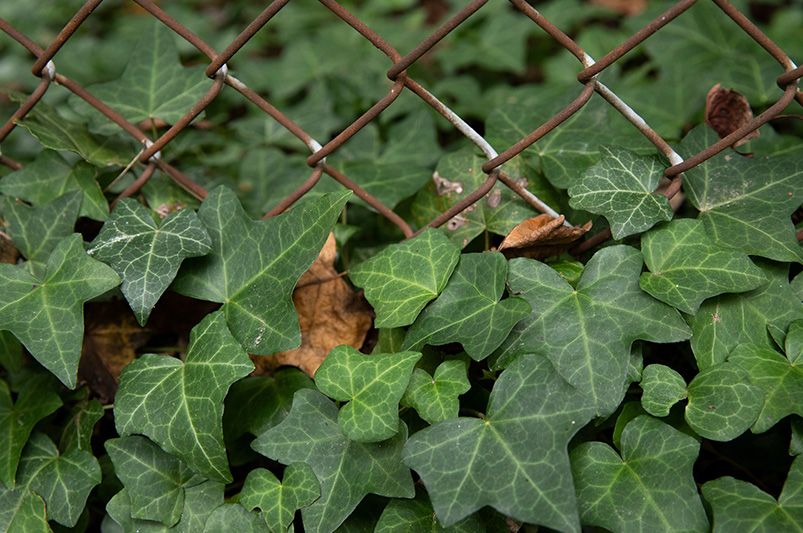
English Ivy:
This could be the most well-known and widely cultivated species, English ivy plant features glossy dark green leaves that form dense mats or climb vertical surfaces with the help of aerial roots and it’s ideal for ground cover, containers or as a climbing vine. It thrives in partial to full shade and moist, well-draining potting soil and English ivy is relatively low maintenance. English ivy may require regular pruning for growth control but it can tolerate a range of soil types and is drought tolerant.
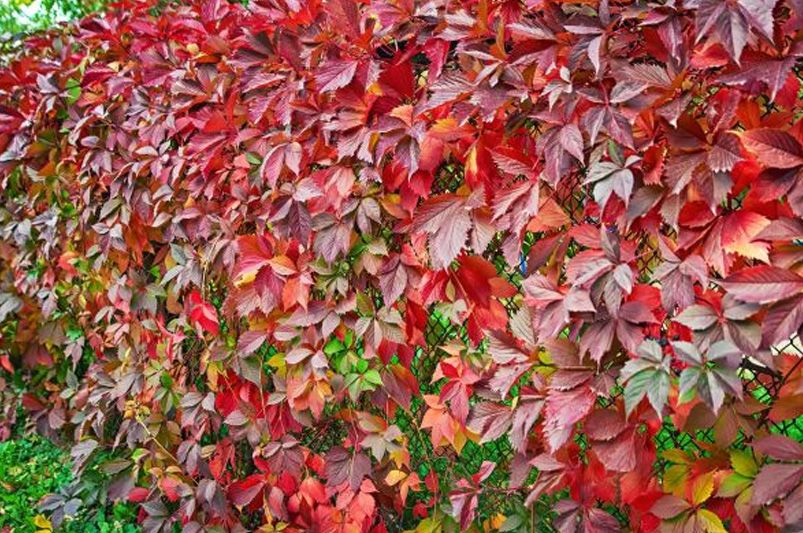
Engelman Ivy Virginia Creeper:
The Engelmann Ivy Virginia Creeper (Parthenocissus quinquefolia ‘Engelmannii’) is a rapidly growing vine that enhances the visual appeal of any garden. Ideal for covering walls, fences, and trellises, it features large, elongated leaves that turn a deep red in autumn. This creeper requires minimal care and can withstand different soil conditions. Additionally, it’s a fantastic way to draw in wildlife by providing them with shelter and food.
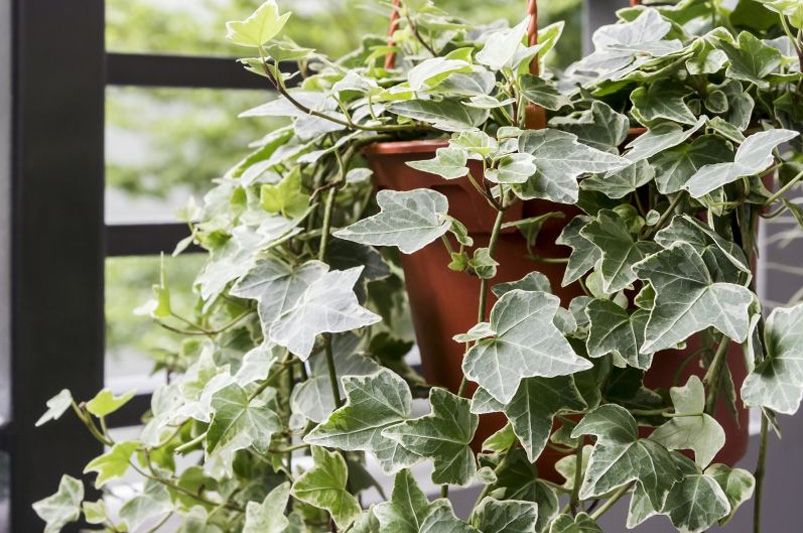
Hedera English Ivy:
Hedera English Ivy, also known as Hedera helix Green, is a versatile plant with beautiful foliage that can thrive in various environments. The Hedera English ivy is famous for its air purifying properties, making it a popular choice for indoor areas. Its versatility allows it to be used as a ground cover, climber, or in hanging planters.
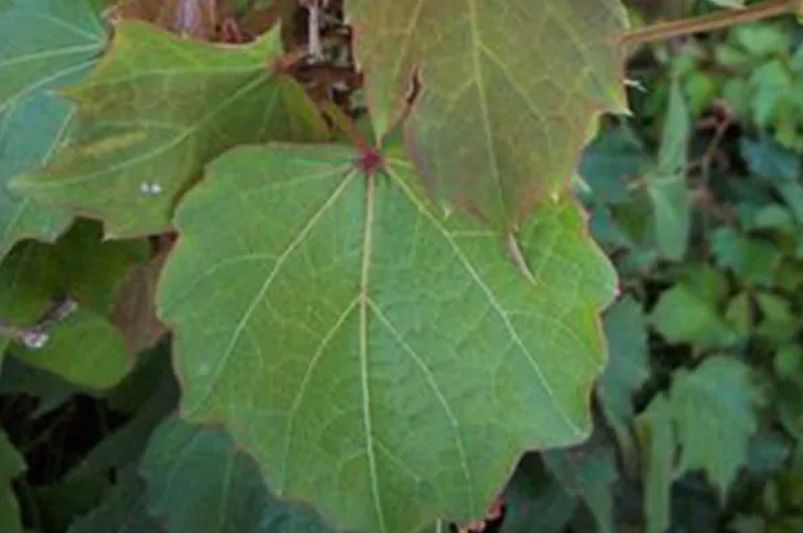
Robusta Boston Ivy:
The Robusta Boston Ivy is a vine that can reach heights of 50 feet as it climbs. Its leaves transform from green to red during the fall season, making it a popular option for adding autumnal hues to gardens and landscapes. Unlike other ivy types, this particular variety is not susceptible to diseases and pests, which means it requires minimal upkeep. Its ability to stick easily to walls and surfaces makes it an excellent choice for covering buildings and fences.
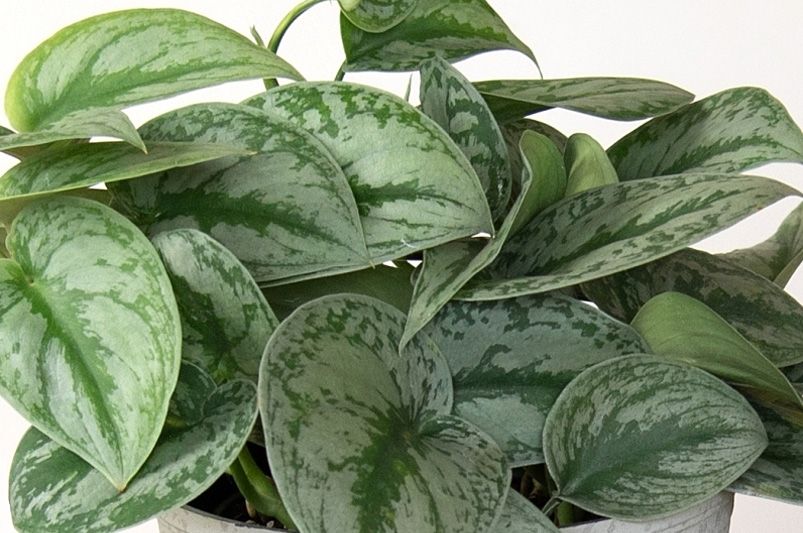
Pothos 'Silver Satin' Ivy:
Pothos ‘Silver Satin’ ivy is a well-liked indoor plant, recognized for its distinct silver leaves and touches of green. Its easy care makes it an excellent choice for beginner plant enthusiasts. It’s an ideal choice for offices or homes with limited natural light as this plant is low-maintenance and can thrive in low light conditions.
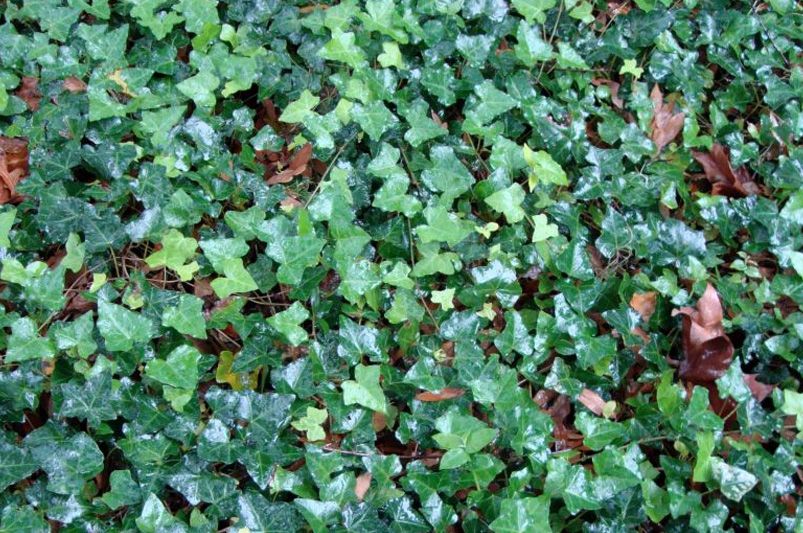
Thorndale English Ivy:
The Thorndale English Ivy (Hedera helix ‘Thorndale’) is a well-liked evergreen vine due to its attractive appearance and minimal upkeep. The glossy, dark green leaves make a beautiful background for other plants and are versatile for container plantings, hanging baskets, or ground cover. A key advantage is its ability to withstand various conditions, making it a perfect selection for both inexperienced and seasoned gardeners.
What Makes Ivy Trees a Popular Houseplant
Versatility:
The Ivy plant is incredibly versatile and can be used in various landscaping scenarios and options. They’re usually commonly used as ground covers, where they spread densely to suppress weeds and provide erosion control and can be grown indoors. Moreover, they can be also clothe brick walls, climbing ornamentals, trellises, fences and other structures adding greenery and texture to vertical surfaces.
Evergreen Foliage:
Many species are evergreen, meaning they retain their leaves throughout the year. This makes them valuable for providing color and texture in the garden all year round, especially during the winter months when deciduous plants have shed their leaves.
Wildlife Value:
Ivy plants offer habitat and food for wildlife, their dense foliage provides shelter and nesting sites for birds and small mammals. The flowers of the ivy plant typically bloom in the fall, are a late season nectar source for bees and other pollinators.
Low Maintenance:
Once established successfully, these plants are generally low maintenance, they’re tolerant of a wide range or soil types and light conditions, although they typically prefer moist, well-draining soil and partial to full shade. Minimal pruning may be required to keep the plant in check and prevent them from becoming invasive.
Potential Invasiveness:
While plants can be valuable additions to the garden, some species have the potential to become invasive in certain environments. English ivy, in particular, is known for its aggressive growth habit and ability to smother native vegetation in some regions. It’s essential to choose non-invasive ivy species and types to monitor their growth to prevent them from spreading uncontrollably.
Caring for Ivy Plants:
Caring for ivies is not very difficult and is relatively straightforward and requires minimal effort. These are some essential tips for keeping your plant healthy and vibrant:
The Right Light:
This plant prefers partial to full shade but can tolerate some sun, especially in cooler climates so avoid exposing them to direct afternoon sun as this can cause leaf burn.
Tips for Watering:
Keep the soil consistently moist but not waterlogged. Water the plant regularly during the growing season and reduce watering in winter when growth slows down.
How to Prune The Ivy Plant:
Trim plant as needed to control their growth and their shape. Remove any dead or yellowing leaves and prune back overgrown stems to encourage bushier growth.
Ways of Fertilizing:
Feed the plant with a balanced liquid fertilizer during the growing season to promote healthy growth and avoid over-fertilizing, as this can lead to excessive leafy growth at the expense of beautiful flowers.
Pests and Diseases:
Ivies are relatively pest and disease-resistant, but they can occasionally be affected by things like aphids, spider mites, or scale insects. Make sure you monitor your plant regularly and treat any infestations promptly with insecticidal soap or neem oil.
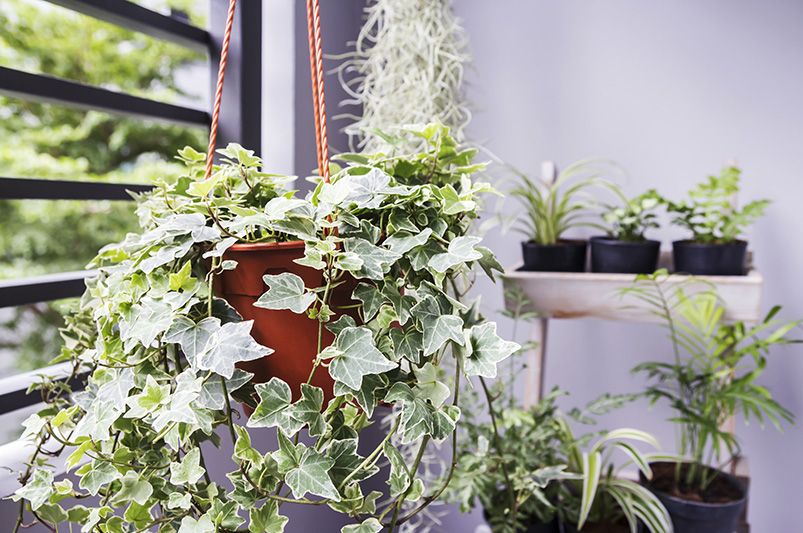
Design Ideas with The Ivy Plant
There are many versatilities of this plant which makes them suitable for a wide range of garden designs and applications. Here are some creative ways to incorporate them into your landscape:
Vertical Gardens:
Create a stunning living wall or vertical garden by training this plant to climb trellises, arbors or pergolas. Mix different ivy varieties for added texture and interest.
Ground Cover:
Use them as ground cover to carpet shady areas under trees or along your garden pathways. Their dense growth habit suppresses weeds and adds a lush green backdrop to the landscape.
Container Gardens:
Plant ivy in hanging baskets, window boxes, or containers to add a touch of vibrant greenery to porches, patios, or balconies. You can mix ivy with a flowering plant or trailing vines for a dynamic display of color and texture.
Topiary:
Get creative with ivy by shaping it into topiary forms or espalier designs. Train ivy to grow over wire frames or wooden supports to create whimsical shapes or intricate patterns.
Explore Shrubhub.com’s interactive design tools to visualize your dream garden in stunning detail. You can choose from a wide selection of varieties and species, companion plant, and landscape features and experiment with a variety of layouts and arrangements to find the perfect design for your outdoor space. With Shrubhub.com’s intuitive interface, designing your own tree dream garden is a breeze!
Enhancing Your Garden with Ivies
In conclusion, ivies are a timeless choice for adding a spectacular choice of all year round beauty and elegance to your garden landscape. With their evergreen foliage, adaptability to various growing conditions and low-maintenance nature, this plant has versatile options for both novice and experienced gardeners too.
Whether they’re used as ground cover, climbers, or container plant, ivies offer endless possibilities for enhancing your garden design. With proper care and creative planning, you can enjoy the enduring charm of ivies throughout the seasons, creating a garden that delights the senses and provides a welcoming green oasis.
One lesser-known fact about ivy trees you might miss out on to enhance it's value is their ability to provide significant benefits to the environment beyond their ornamental value, particularly species like English ivy (Hedera helix) as they are air purifiers as mentioned earlier. This plant has been found to effectively filter pollutants such as airborne mold spores from the air thereby improving indoor air quality which makes them an excellent choice for planting near homes, offices and indoor spaces. By incorporating ivy trees into your landscape, you’re not only enhancing the beauty of your surrounding space but you’re also contributing to a healthier environment.


